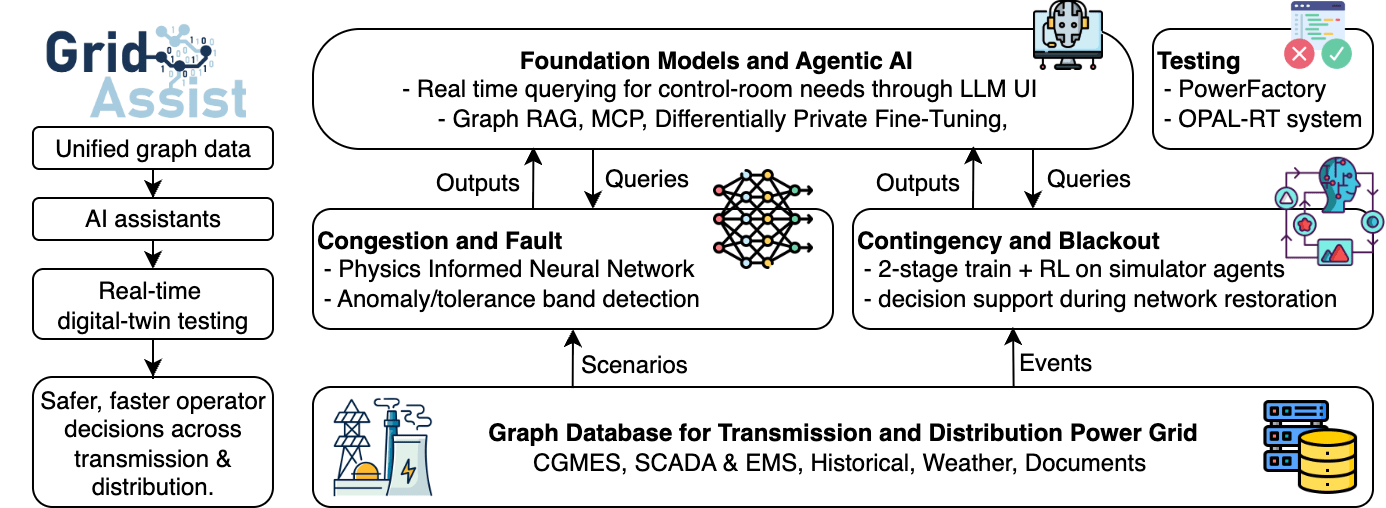Changhun Kim, M. Sc.
Research Project: GridAssist

Check the demo.
Education
- M.S. in Artificial Intelligence, Friedrich-Alexander University Erlangen-Nürnberg, Germany (Sep 2022 – Mar 2025)
- Thesis: RetNetHTR – Leveraging Retentive Networks for Efficient and Accurate Handwritten Text Recognition
- Teaching Assistant: Advanced Deep Learning, Introduction to Machine Learning
- Research Assistant, Medical Imaging AI Lab
- B.S. in Computer Science, University of Seoul, South Korea (Mar 2014 – Feb 2021)
- Undergraduate Research Assistant, Environmental System Toxicology Lab
- Two-year absence due to mandatory military service
Experience
- Research Assistant, AI Medical Imaging Lab, FAU Erlangen-Nürnberg
- Project: Self-supervised denoising of fluorescence microscopy images
- Researcher, Urban Big Data and AI Institute, University of Seoul (Jan 2021 – Sep 2022)
- Project: Graph Neural Networks for molecular toxicity prediction
- AI Educational Content Technical Quality Assurance , MODULABS, South Korea (May 2021 – Oct 2021)
- Research Intern, Environmental System Toxicology Lab, University of Seoul (Sep 2018 – Dec 2019)
- Project: Machine learning for imbalanced toxicity data prediction
2024
-
Teilvorhaben: KI gestütztes Engpassmanagement und Netzwiederaufbau
(Third Party Funds Group – Sub project)
Overall project: GridAssist - Assistenzsysteme für eine optimierte automatisierte Systemführung in Verteilnetzen
Project leader: , , ,
Term: December 1, 2024 - November 30, 2027
Acronym: GridAssist
Funding source: Bundesministerium für Wirtschaft und Energie (BMWE)TP3: Automated Optimal System Management in MS/HS Networks & Network Restoration
AP 3.1: Automated Bottleneck and Fault Management Based on Machine Learning Methods
AP 3.2: Stable Grid and Supply Restoration
TP5: Competence Team for Interfaces and Databases
AP 5.1: Creation of a Knowledge Database for Heterogeneous Power Grid Data Sources
Automated Grid Management and Restoration through AI and Data Integration
The increasing complexity and volatility of modern power grids necessitate intelligent, automated systems for optimal operation and rapid restoration. In TP3, we develop AI-driven solutions for automated bottleneck and fault management (AP 3.1) as well as stable and systematic grid restoration (AP 3.2) in medium- and high-voltage (MS/HS) networks. These systems leverage machine learning techniques—ranging from supervised and unsupervised learning to reinforcement learning—with a hybrid training approach incorporating domain knowledge via Physics-Informed Neural Networks (PINNs) and Known-Operator Learning. This ensures reliable, explainable decision-making in real-time operations and minimizes data requirements in safety-critical environments.
In bottleneck management, predictive and event-triggered AI models autonomously suggest topology adjustments and flexibility deployment, factoring in a wide range of grid constraints and operational targets. Fault management employs multi-source data analysis for real-time fault detection, location, isolation, and resupply, utilizing both existing sensors and proposed novel measurements. For restoration, a dedicated assistance system is developed using a two-stage training process: supervised learning of standardized grid restoration procedures followed by reinforcement learning in a high-fidelity simulation environment. A single-agent model competes across simulation instances to evolve optimized strategies for power system recovery.
To support these applications, TP5 (AP 5.1) establishes a unified graph-based knowledge database for integrating heterogeneous data sources—from GIS, SCADA, and metering systems—into a cohesive representation. This structure enables complex system queries and machine-readable context for AI models, forming the backbone of advanced operational analytics.
The entire system architecture and algorithms are tested in AP 6.3 through a hybrid field test utilizing real-time simulation with OPAL-RT and live grid snapshots from Lechwerke’s control center. Assistance systems interface with the simulation via standard protocols, ensuring vendor-independent implementation and practical transferability. Experienced grid operators validate the system in realistic operational conditions, ensuring alignment with the requirements of future grid operations and energy transition goals.
Research Project: GridAssist – AI-based techniques for automated congestion control and fault mangement in power grids, while also buidling a robust knowledge database that integrates and harmonizes heterogeneous power grid data from multiple sources.
Research Areas: Congestion and Fault mangement in Electrical Grid, Graph Neural Networks, Time Series Data Analysis, and Reinforcement Learning for Decision-Making in Power Systems.
2025
Conference Contributions
- , , , , , , :
Impact of Data Sparsity on Machine Learning for Fault Detection in Power System Protection
33rd European Signal Processing Conference (EUSIPCO 2025) (Palermo, September 8, 2025 - September 12, 2025)
In: 2025 33rd European Signal Processing Conference (EUSIPCO) 2025
URL: https://ieeexplore.ieee.org/document/11226584
BibTeX: Download - , , , , :
Impact of Training Dataset Size for ML Load Flow Surrogates
Oberlausitzer Energiesymposium 2025 & Zittauer Energieseminar (Zittau, November 25, 2025 - November 26, 2025)
BibTeX: Download

